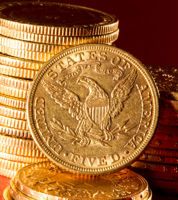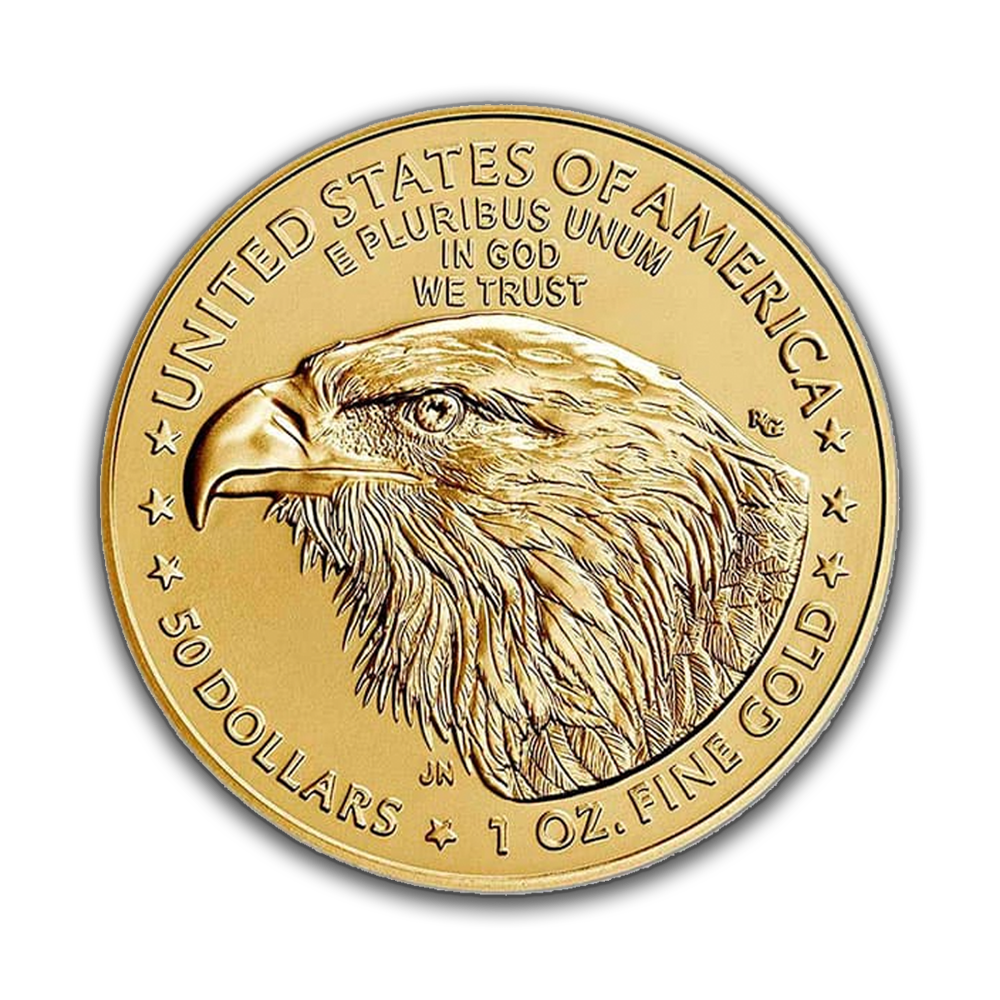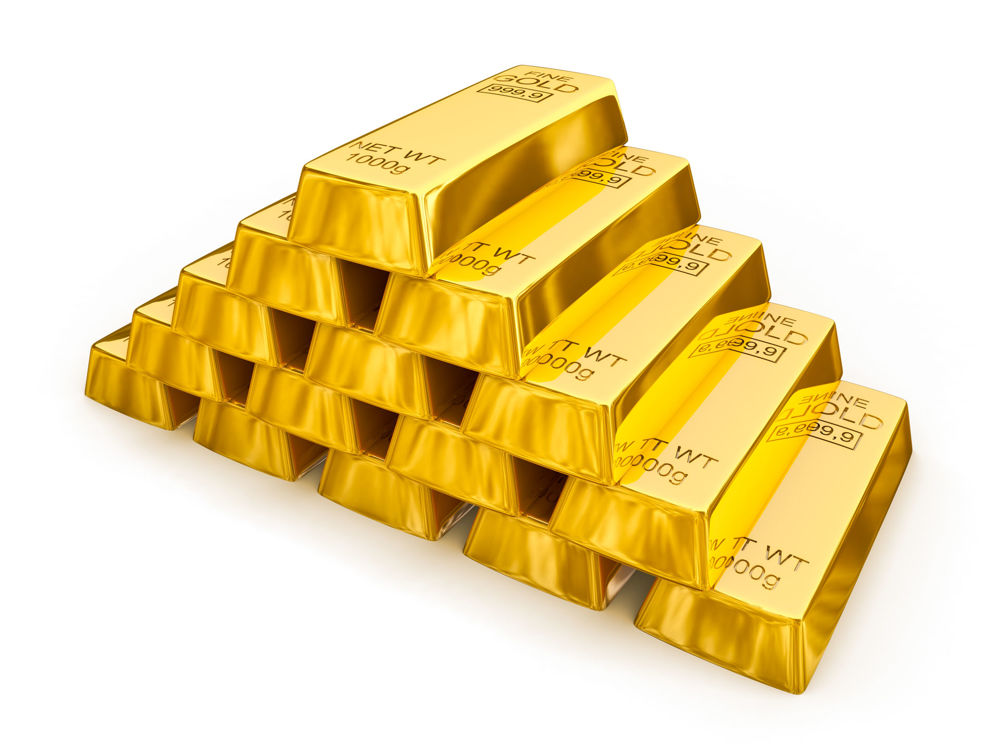Posted on February 03, 2022

Gold is a highly sought-after commodity, both for its beauty and value. But, while buying gold jewelry is a pretty straightforward process, what about buying gold bullion? Well, there are various options when it comes to purchasing gold bullion, and some are better than others. So it’s important to know what your options are, as well as the key points to look out for to make sure you’re getting the most out of your money.
 When it comes to buying gold bullion, there’s an abundance of choice which includes:
When it comes to buying gold bullion, there’s an abundance of choice which includes:
If you’re looking to buy guaranteed high-quality gold bullion for a fair price, authorized bullion dealers online will be your best bet. Authorized dealers online provide the comfort of knowing you’re purchasing a legitimate gold product, in addition to offering some of the most competitive pricing in the industry due to lower overhead costs.
If you choose to buy from an unauthorized dealer, there’s no guarantee you’re buying the product you think you’re buying. For example, since the U.S. Mint only sells to authorized dealers, you could fall victim to a scam if you buy from an unauthorized dealer. Common scams include selling products that don’t exist, selling counterfeits, or falsifying documentation.
There are three main options for buying gold bullion:
Gold bars are a simple choice and generally come with the lowest price per ounce, closest to the spot price of gold. They’re available in various sizes, generally ranging from 1 gram to 100, but going as high as 400 ounces in weight.
 Larger gold bars are generally less expensive for refiners to produce and tend to have the lowest premiums over spot price. Of the three types of gold bullion, gold bars are made in the widest range of weights to accommodate every budget. Virtually anyone can scrape together enough money to buy a 1 gram gold bar. At the other end of the spectrum, a 1 kilogram (32 troy oz) gold bar costs as much as a really nice new car. Gold bullion coins and rounds simply don’t have the same variety of weights available.
Larger gold bars are generally less expensive for refiners to produce and tend to have the lowest premiums over spot price. Of the three types of gold bullion, gold bars are made in the widest range of weights to accommodate every budget. Virtually anyone can scrape together enough money to buy a 1 gram gold bar. At the other end of the spectrum, a 1 kilogram (32 troy oz) gold bar costs as much as a really nice new car. Gold bullion coins and rounds simply don’t have the same variety of weights available.
Gold coins, which are, of course, still made of gold, also have a face value as government currency, though it’s usually no more than a small fraction of its actual value. They typically command a higher price over spot. Gold coins are most often minted in 1-ounce weights but can sometimes be found in other sizes like 1/2 ounce, 1/4 ounce, and 1/10 ounce. Gold coins benefit from being more recognizable and vastly more complicated to convincingly counterfeit than bullion bars or rounds.
Gold rounds often look and feel like gold coins, with the only difference being they don’t have a face value. Rounds aren’t minted by a government and therefore don’t have that implicit government guarantee. Generally, gold round prices are closer to gold’s spot price than coins.
Unfortunately, rounds are more difficult to liquidate quickly (since a government does not back them, and rounds exist in such a wide variety of designs). Gold rounds are most often 1 ounce, but like coins, they may also be sold in fractional sizes such as 1/2, 1/4, 1/10, and 1/20 ounce. We’ve even seen gold rounds as small as 1/4 gram! Keep in mind that premiums over spot price tend to be higher as the weight per gold round gets lower.
Gold bars are the simple choice with a vast selection of different weights to choose from. Bars are a cost-effective way of owning physical gold, which doesn’t carry the premiums often seen with gold coins. A variety of weights offers a budget-friendly choice for nearly everyone. If you’re seeking an investment in gold itself, bars are likely the best place to start.
Gold coins still have the same gold value as any other type of gold but are also legal currency and can have numismatic value to collectors. Gold coins are ideal for getting some gold exposure if you’re a coin collector and don’t mind paying for the higher price tag in exchange for a face value and the collectible value. Honestly, gold coins are also much more enjoyable to own, in our opinion.
Gold rounds are very similar to gold bars in that they are a very affordable way to get into physical gold. Though rarely appealing to collectors, gold rounds can have all sorts of designs and images featured on their faces. Rounds are a comparable alternative to bars, so if you prefer the shape of a coin over a bar, then rounds are a solid option for you.
Another easy way to choose which gold bullion to buy is by looking for refineries on the Good Delivery List. The London-bsed bullion market trade group provides accreditation to refineries whose quality standards meet their approval. These are the highest-quality products available, so you can be sure that gold bars from refineries with the Good Delivery certification are synonymous with the gold standard.
You can choose from various options when settling up for gold you'd like to buy. Among those options are:
 Bank wire
Bank wireBullion shipping times depend on the method of payment used (a paper check can take time to clear, so your order won’t be shipped until the money hits the seller’s account), the specific product you’re purchasing, and the order size. For orders of $199 and up, BullionMax includes free shipping. Orders are fulfilled by U.S. Mail or UPS and are fully insured. Most orders ship within 1-3 business days.
The amount of gold you buy in a single transaction matters because certain minimum fees are associated with buying gold bullion. In general, the more gold you buy, the less you’ll pay per gram or ounce. For example, both a 1 oz gold bar and a 10 oz gold bar each have very similar manufacturing costs, but if you buy ten 1 oz bars versus one 10 oz bar, you’ll pay far more per ounce for the former since the manufacturing process would need to be repeated ten times.
Spot gold prices refer to raw, unrefined gold. It costs companies money to refine, assay, and mint gold into bullion bars and coins. Then, the gold must be packaged and shipped to dealers; these costs are passed along to retail buyers by marking up bullion prices. Since there are minimum fees to cover these expenses, buying small quantities of gold will mean paying a higher premium over the spot gold price.
You can enjoy the benefits of owning physical gold bullion without the worry of having it stored for you. Delaware Depository allows people to buy, securely store, and sell gold without ever taking physical ownership of the gold. Storing your gold at home gives you instant access at all hours, though home security falls far short of the security measures at a storage depository. Many people will also choose to store gold in a safety deposit box at a bank. Banks are, of course, extremely secure, though you won’t have 24/7 access to your gold.
One simple way to insure gold is through your home insurance policy. However, most policies have very low coverage limits, so you’ll want to add a rider that offers higher limits. For those with a substantial quantity of gold bullion, storing your gold in a vault with a bank or depository that has insurance might be your best option.
The most important thing to keep in mind when buying gold is the seller’s reputation. Whenever possible, buy from authorized bullion dealers with excellent reputations. The London bullion market trade group, the leading bullion authority, also has full members and affiliates, which can be an excellent place to start if you’re looking for a reliable bullion dealer.
You’ll also want to pay attention to the weight and purity of the gold you're buying. Double-check on the specifications of the bars or coins you’re interested in. Never expect to pay less than the spot price for any precious metals. Finally, trust your instincts– if something feels off, it probably is.
The best way to avoid these problems is to obtain documentation on both the gold bullion itself and the seller. The London bullion association is an excellent resource to use since they openly share a list of their members and affiliates.
Most legitimate gold bullion comes with either an assay card (for bars) or a certificate of authenticity (coins, bars, and rounds). Do your due diligence on the seller, including reviews. If you’re buying from secondary markets, verify documentation from grading services if official certificates or assay cards aren’t available. If no supporting documentation is available, you can use a gold test kit to immediately verify if you’re buying actual gold or a fake.